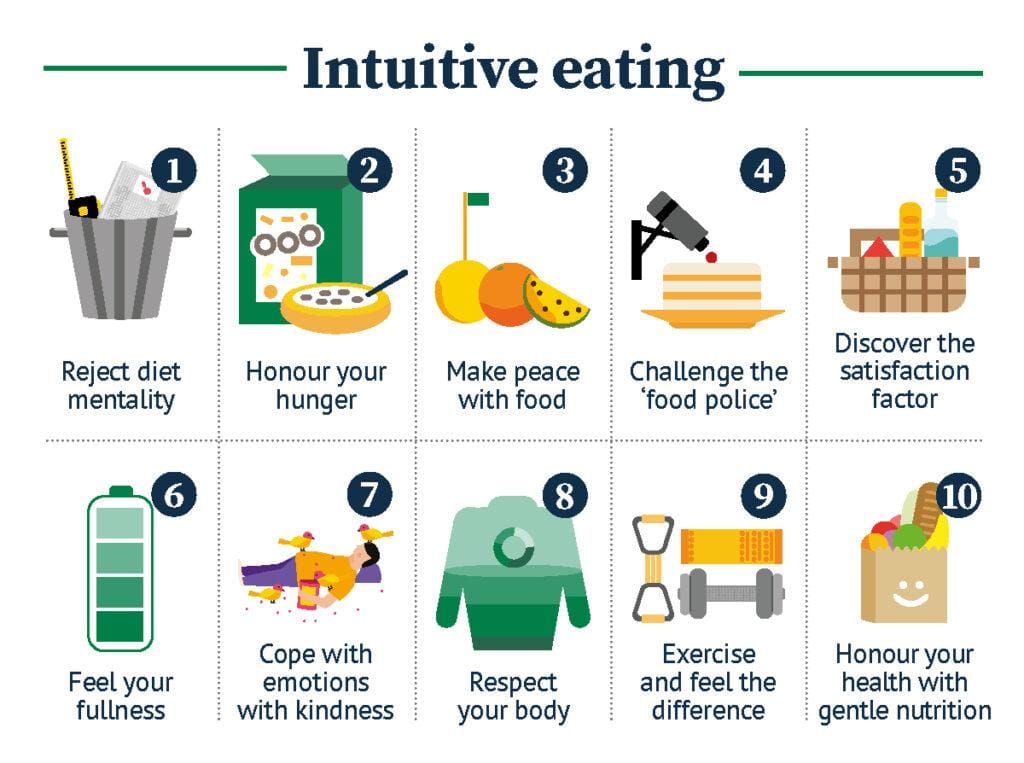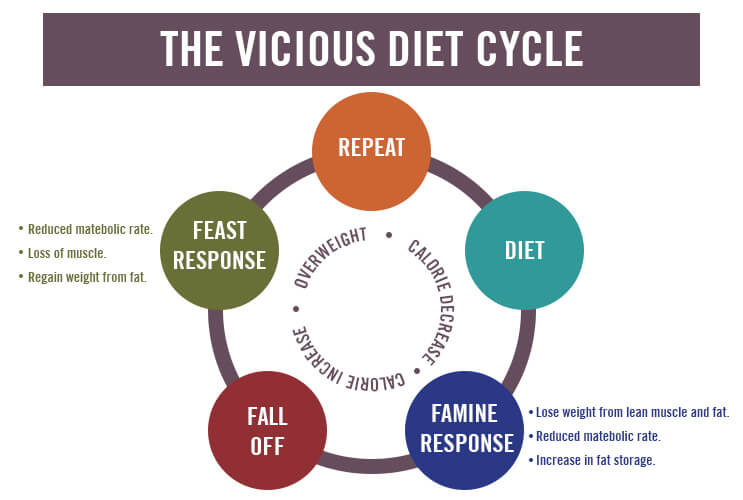Every other day we hear of some new diet that villainizes a certain group of foods and assures us that it is a fool-proof method of losing unwanted weight. The latest addition to this list is ‘intuitive eating.’

Let us start with understanding what Intuitive eating is.
What is intuitive eating?
Also known as mindful eating, intuitive eating is all about listening to your body and eating when you are hungry. The goal is to practice instinctive eating tendencies depending on what the body wants and when the body wants it.
It is much like how babies and animals eat. They don’t worry about the time of the day or the portion of the food and instead eat when they are hungry, whatever tickles their taste buds, and till they fill full. It is, after all, how nature intended us to be.
What are fad diets?
Fad diets are so-called because they usually trend for a particular period before some other type of new diet comes and takes its place.
The main difference between fad diets and intuitive eating is in how they treat food and eating. Fad diets focus on weight loss whereas intuitive eating is all about well-being, both physical and mental. In simple terms, intuitive eating and fad diets are polarizing topics with complete opposite practices and goals.

So, which one should I follow?
There is no straight answer to the question. At least we can’t give you one because it depends on a number of factors like your medical history, your health goals, and so on, and a diet plan that works wonders for someone might not work for you.
For example, Keto is a very popular fad diet and while many celebrities swear by it, experts warn against following Keto for a prolonged time. For one thing, Keto cuts down the intake of a large group of foods, which have important roles to play in keeping us healthy. Following Keto for a long time can lead to cardiac issues, kidney problems, and more.
The other very worrying side effect of fad diets is deteriorating mental health. According to an article published in behavioural nutrients.org. “Dieting may not be the cause of eating disorders, but it is often a precursor. The National Eating Disorders Association reports that 35% of ‘normal dieters’ progress to pathological dieting.
Eating disorders such as anorexia, bulimia, and binge eating disorders are serious, life-threatening problems that affect around 25% of teenage girls in India, according to a report published in Scroll.in
Intuitive eating, on the other hand, works towards eliminating this exact problem. Instead of focusing solely on weight, calories, and BMI, it addresses emotional health, mental well-being, and physical wellness.
Weight loss for such people is not about meeting societal standards of beauty but a question of life and death.
Hence, while intuitive eating is great for individuals with a tendency of having eating disorders, it might not work for everyone. In fact, experts recommend DASH and Mediterranean diets for people with diabetes, since numerous studies have proved their efficacy in preventing and controlling the disease.
Read More – Diet For Women To Live Healthy In Their 30s













